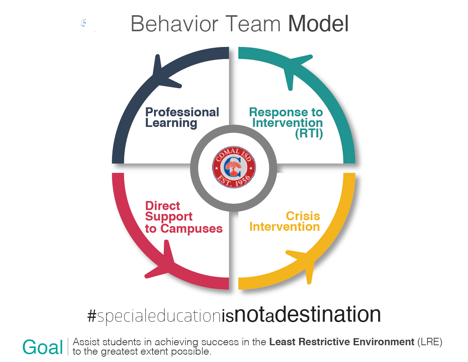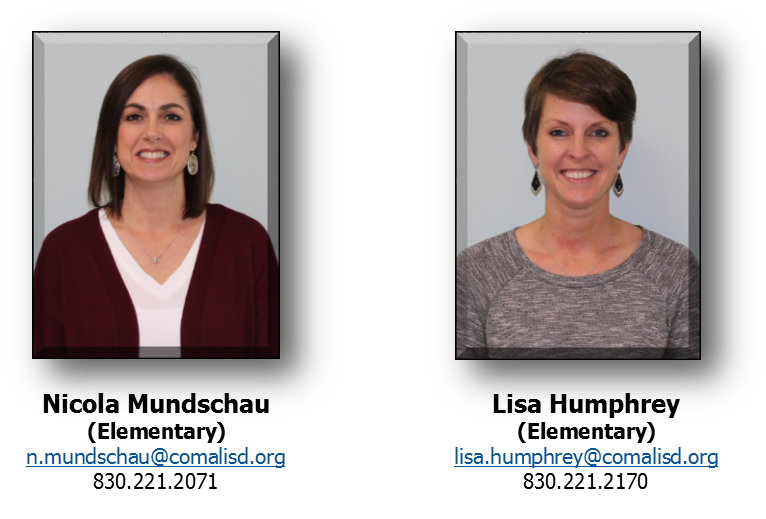Specialists
Assistive Technology / Low Incidence Disabilities Specialists
Coordinate and manage district instructional programs to meet the needs of student’s served through a life skills classroom. Serve as instructional leader in development and improvement of programs provided in life skills classrooms. Collaborate with district staff and outside personnel to formulate, develop, implement, and evaluate research based interventions in Special Education. Provide Assistive Technology services to eligible students and support education professionals to enable special education students to access their educational process as independently as possible.
Assistive Technology Specialist/Speech Language Therapist
Plans and provides speech-language pathology services to students with speech, voice, or language disorders. Assesses students and provides therapeutic intervention to eliminate or reduce problems or impairments that interfere with their students’ ability to derive full benefits from the educational program.
Behavior Specialists & Board Certified Behavior Analysts
Specialized Behavior Support
The specialized behavior setting provides social, emotional, and behavioral support in the least restrictive setting possible with a priority for students to remain in the general education classroom. Intensive support can be provided in the behavior setting as part of an intervention utilized for more significant behaviors of concern and serve as an alternative schedule until the student is ready to transition back to class. All interventions are determined on an individual basis by the Admission, Review and Dismissal (ARD) committee.
The behavior support team provides variety of services such as the following:
Specialized Behavior Support
Comal ISD Special Education supports students with social, emotional, and behavioral differences by utilizing a continuum of individualized services. Our specialized behavior settings use a variety of instructional techniques to shape challenging behaviors through evidence-based curriculum and strategies such as: Social Thinking, 7 Habits of a Highly Effective Teen, Boys Town, Zones of Regulation, and the ALERT Program.
Professional Development
The behavior team provides specialized training to a variety of CISD staff. This includes General education and Special education teachers, Paraprofessionals, Transportation, SACC employees.
A diverse selection of trainings are available on topics such as De-escalation techniques, Behavior Management, Trauma-Informed Teaching, Data Collection, Restorative Discipline, and much more.
Response to Intervention
The behavior team is integrated into the RTI process. Team members consult with administrators and teachers to recommend research-based interventions and guide data collection.
Direct Campus Support
The behavior team provides direct support to all campuses for students who have IEP goals targeting behavior. Team members consult with administrators and teachers to troubleshoot challenges, audit and refine programming, provide tools and resources, model strategies, teach social skills, and participate in the evaluation process and ARDc meetings. Additionally, team members work closely with families to provide parent and in-home training for students with disabilities.
Crisis Intervention
The behavior team members provide immediate intervention for students who are in crisis. Team members work to de-escalate behavior and establish systems of support that the campus staff can sustain. During this process, team members continue with regular consultation and check-ins to monitor progress.
Instructional Specialists
Coordinate and manage district instructional programs to meet the needs of students with special education services. Serve as instructional leader in development and improvement of programs for students with disabilities. Collaborate with district staff and outside personnel to formulate, develop, implement, and evaluate research based interventions in Special Education.



